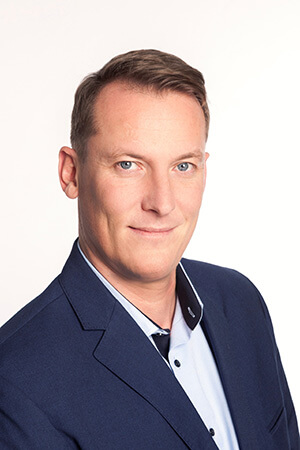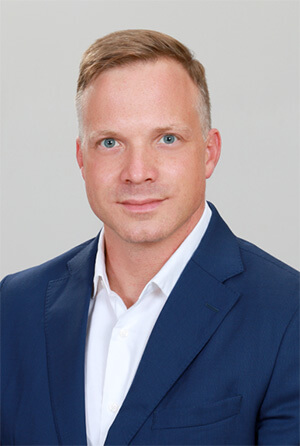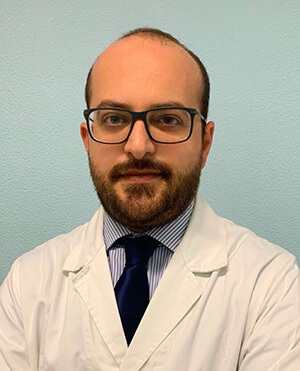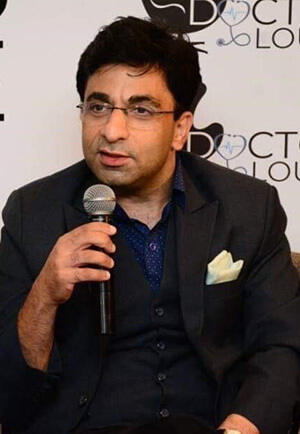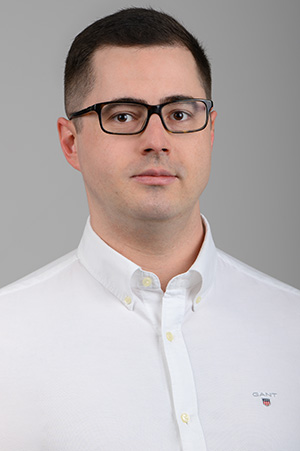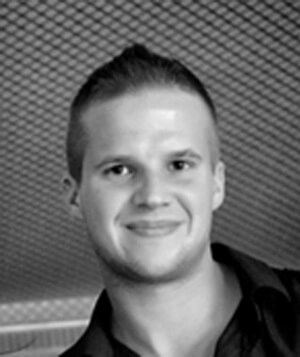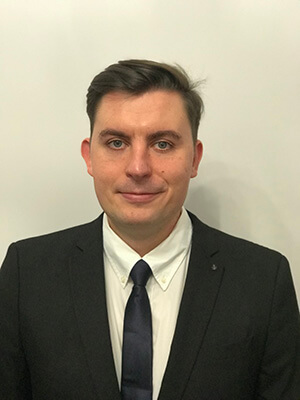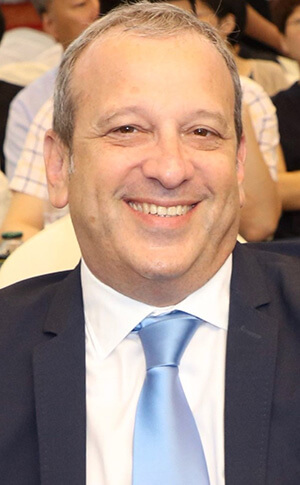FACULTY
Péter Török MD, PhD, Med Habil
Chair of the Hungarian Congress on Hysteroscopy
PhD 2014: Office hysteroscopy — in every day gynaecology workup
Habilitation 2021: Evaluation and treatment of intrauterine lesions by traditional and office hysteroscopy
2000 Medical doctor
2006 Specialist in Obstetrics and Gynecology
Role in scientific community
Member of the Hungarian Society of Obstetrics and Gynecology
Member of the Leading Board of Hungarian Society of Gynaecological Endoscopists 2013-
Member of European Society for Gynaecological Endoscopy
Member of The International Society for Gynecological Endoscopy – Taskforce in hysteroscopy
National representative: Global Congress on Hysteroscopy
National representative: International Hysteroscopy Congress
He is working in Department of Obstetrics and Gynecology (University of Debrecen)
Assistant Professor
- Head of the Endometriosis Unit 2017-
- Head of Reproductive Surgery work-group 2020-
Title of presentation:
Role of hysteroscopy in infertility work-up
Innovations in hysteroscopy – present&future
Infertility is a common problem all over the world, it affects approximately the 10-15% of the population. Lesions of uterine cavity (endometrial polyp, submucosal fibroid, intrauterine adhesion and septum), the morphological uterine abnormalities (dysmorph uterus) and chronic inflammation of the endometrium are very important, due to their clinical significance.
In infertility workup, new, modern diagnostic procedures have become available, which in addition to the traditional methods are more reliably in detection of the above-mentioned abnormalities. The diagnosis of these diseases is very important, because with adequate treatment we can significantly improve the pregnancy and birth rates.
Office-hysteroscopy is significant in both diagnosis and treatment. Via hysteroscopy a numerous surgical procedures can be performed in the uterine cavity (e.g. polypectomy, myomectomy, adhesiolysis, septal resection, metroplasty). As hysteroscopic diagnosis and surgical technics require a great skill and expertise, intrauterine surgery as a sub-specialization is emerging within the general gynecological practice.
Rudolf Lampé MD, PhD, Med Habil
Scientific Chair of the Hungarian Congress on Hysteroscopy
Title of presentation:
Endometrial polyps
Role of hysteroscopy in fertility preserving in endometrial cancer
Antonio Simone Laganà MD, PhD, Med Habil
Medical Doctor at the Department of Obstetrics and Gynecology, “Filippo Del Ponte” Hospital, University of Insubria, Varese, Italy.
Antonio Simone Laganà was born in Reggio Calabria (Italy) on 8th May 1986. He is Deputy of the Special Interest Group for Endometriosis & Endometrial Disorders (SIGEED) of the European Society of Human Reproduction and Embryology (ESHRE) and Ambassador of the World Endometriosis Society (WES).
Antonio Simone Laganà was trained in obstetric/gynecological ultrasound at the Altamedica Main Centre in Rome (Italy), got the Master in “Gynecological Minimally Invasive and Robotic Surgery” at the University of Pisa (Italy), the Ph.D. in “Medical and Surgical Biotechnologies” at the University of Messina (Italy), and developed an intensive training in minimally invasive gynecological surgery (high-volume advanced laparoscopy, hysteroscopy) at the Univerzitetni Klinični Center Ljubljana (Slovenia), during the Subspecialist Training Programme (Fellowship) in Reproductive Medicine (according to the criteria of the European Society of Human Reproduction, ESHRE, and Embryology and European Board & College of Gynecology and Obstetrics, EBCOG).
His research interests include endometriosis, reproductive immunology, infertility, gynaecological endocrinology, laparoscopy, and hysteroscopy. He is the author of more than 300 papers published in PubMed-indexed international peer-reviewed journals, and his presence is often requested as an invited speaker at international congresses. He is currently an editor of high-impact journals, including Scientific Reports, PLOS One, Journal of Minimally Invasive Gynecology, Journal of Ovarian Research, Gynecologic and Obstetric Investigation, and many others.
He is habilitated as Associate Professor in Italy for Gynecology and Obstetrics.
Title of presentation: Uterine septum: treat it or leave it?
- Women affected by uterine septum have worse pregnancy rate, miscarriage rate, live birth rate, and preterm delivery rate than women with normal uterine cavity.
- The analysis of reproductive outcomes before / after hysteroscopic metroplasty suggests that this procedure improves live birth rate, miscarriage rate and preterm delivery rate
- Hysteroscopic metroplasty is a procedure with a very low complication rate (< 1.5%, overall).
Rahul Manchanda MD
Gynae Endoscopic Surgeon
M.B.B.S., MD, FICOG, FICMCH, FICS,FACS
Around 120 Publications in international and national journals
Authored 3 books ,Key notes on Hysteroscopy & Stepwise Access to hysteroscopy by CBS publishers and Intra Uterine adhesions -Diagnostic and therapeutic insight by Springer
Reviewer for many international journals
FOGSI Accredited Endoscopy Teacher
ICOG(Indian College Of Obstetricians and Gynaecologists) Accredited Endoscopy Teacher
IAGE(Indian Association Of Gynaecological Endoscopy) Accredited Endoscopy Teacher
Co-Chair IHC(International Hysteroscopy Congress)2018 (Regional GCH – AsiaPacific Congress)
International Coordinator and Founder CoChair of Regional IHC(Middle East& North Africa),Cairo,Egypt 2020
International Coordinator and Founder CoChair of Regional IHC(South east Asia), Dhaka , Bangladesh 2020
Scientific Committee of Global Hysteroscopy Congress 2019, Barcelona Spain
Indian Representative on Global Hysteroscopy Congress(GCH) 2018
Co-Chair SAFOG (South Asian Federation of Obstetricians and Gynaecologists) Endoscopy Committee
Faculty Master in Minimally Invasive Gynae Surgery , Bologna University , Italy
Chair , Hysteroscopy Committee ISAR-Delhi,2016
Indian Representative on Scientific Committee Of Global Hysteroscopy Newsletter
Director, Manchanda’s Endoscopic Center, New Delhi
Head , Gynae Endoscopy Unit, PSRI Hospital , New Delhi
Head of Gynae & Obstetrics Department , Vimhans Nayati Hospital, New Delhi
www.gynaeendoscopy.com
www.IHC2018.com
www.msecindia.org
Title of lecture: Complications of Hysteroscopy
Complications are part and parcel of any procedure. Hysteroscopy too has its share of complications that may occur. They maybe during or after the procedure. The important thing is to diagnose them so that we can manage them. The first step in this is to know and be aware of them so we can minimize them. We discuss not only the variety of complications but how to minimize and deal with them while touching on the secondary victim too of these happenings.
Márton Lipták MD
He graduated in University of Debrecen, Faculty of Medicine in 2015.
He has been working as a trainee in Obstetrics and Gynecology ward in University of Debrecen Kenézy Gyula Campus.
He has been working as a specialist in Ob&Gyn since 2020.
Title of lecture: Basics of hysteroscopy
- What are the indications of an hysteroscopic procedure?
- Diagnostic and operative hysteroscopic
- Questions of surgical planning.
- Limitations and contraindications of hysteroscopic procedure
- The operative challenges and postoperative care.
- Anatomy of the uterus, tips and tricks for entering the cervical channel, uterine cavity.
- Special maneuvers and movements needed for office procedures.
Balázs Harangi PhD, Habil
He received his MSc degrees in Program Engineering and Mathematics from University of Debrecen, Faculty of Informatics, in 2010. From 2010 to 2013 he was a PhD student at Faculty of Informatics and he obtained his PhD degree in Informatics (Medical Image Processing) from the University of Debrecen, Hungary, in 2015, University of Debrecen. Since 2013 he has been serving as Assistant Lecturer, later as Assistant Professor and as Associate Professor at Department of Data Science and Visualization, Faculty of Informatics, University of Debrecen. He is a member of the IEEE, the John von Neumann Computer Society (Hungary) and member the Hungarian Association for Image Analysis and Pattern Recognition. He has authored or co-authored 57 publications. His primary research fields are the digital/medical image processing, pattern recognition, machine learning/deep learning.
Title of presentation: Developing of convolutional neural networks and their ensembles for medical screening system
Deep Learning based solutions are sufficiently general to be applied to different classification problems with high accuracy. However, if we intend to improve further the image processing performance, we may compose an ensemble from them. Namely, as a corresponding research direction, we investigate how an efficient ensemble of deep convolutional neural networks can be created with forcing them to adjust their parameters during backpropagation to increase the diversity in their decisions.
Zsolt Farkas MD
He graduated in University of Debrecen, Faculty of Medicine in 2014.
He made his residency in Ob&Gyn at the Department of Obstetrics and Gynecology of University of Debrecen Faculty in Medicine. Meanwhile his residency he got familiar with the GESEA program invented by the European Academy of Gynaecological Surgery, passed the GESEA level I-II skill exams. He has been working as a specialist in Ob&Gyn, furthermore as an infant and adolescent gynecologist resident since 2020. In his free time he is a volunteer trainee at the European Academy and organise dry skill lab training for residents at the Department of Obstetrics and Gynecology of University of Debrecen Faculty in Medicine.
Special fields of interest: endometriosis, minimal invasive endoscopic procedures in the field of gynecology and gynecological oncology, dry skill lab training, infant and adolescent gynecology.
Title of presentation: Significance of dry skill lab in training of gynecological endoscopic procedures
In past two decades we could observe that the tutor-apprentice model (described by Halstadt more than a century ago) faced several boundaries in training minimal invasive endoscopic procedures for residents. According to the recommendations of leading professional societies (ESGE,EBCOG, EAGS, ENTOG, ACOG, AAGL) every hospital teaching endoscopic surgery should make available an endoscopic dry skill lab to improve the psychomor skills of the residents. Training in dry skill lab before start training in the OR could decrease patient’s mortality and morbidity and probably the learning curve of the residents. The presentation will discuss the following issues:
- boundaries of the tutor apprentice model
- advantages, disadvantages of dry skill lab training, animal model training, virtual simulator training
- structured dry skill lab program
- opportunities to measure improvement in dry skill lab
- effect of the dry skill lab training on performance in the OR
- future perspectives in optimizing dry skill lab training to probably reach higher performance in the OR
Prof Sergio Haimovich
PhD in Obstetrics and Gynecology (Cum Laude) Barcelona Autonomous University Director of the Gynecology Department. Laniado University Hospital. Netanya, Israel.
Head of the Hysteroscopy Unit. Gynecology Department at the Del Mar University Hospital. Barcelona, España
Vice Chair of the AAGL Hysteroscopy SIG
Director of the International School of Laser in Gynecology. Nadezhda Hospital. Sofia,
Bulgaria.
Co-Chair and co-Founder of the “Global Community of Hysteroscopy”
Clinical Assistant Professor Bruce Rappaport Faculty of Medicine, Technion. Israel
Clinical Assistant Professor at the Faculty of Medicine of the Republic University of Uruguay

